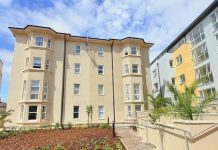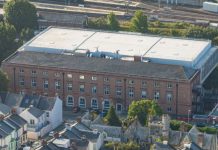Bristol’s future job growth is in danger of being hindered due to a lack of land available in the right locations for manufacturing and logistics businesses, says property consultancy JLL.
JLL, which is hosting its annual South West Property Market Review in Bristol today (Thursday 25 January), is calling for a bold approach to future strategic planning to tackle the issue at a time when the West of England Joint Spatial Plan is at a key stage in its development.
JLL says it is vital that land for manufacturing and logistics businesses is allocated in suitable locations both in the city and in the sub-regions and that Bristol considers extending its outer edge or working with other authorities to identify sustainable options for development, possibly in the green belt, particularly where sites are of poor quality.
Simon Peacock, lead director at JLL in the South West, said: “It’s excellent news that Bristol is prepared to look at building upwards and making efficient use of the brownfield land available in the city centre, with major regeneration projects such as the Temple Quarter Enterprise Campus a vital part of the jigsaw. Elsewhere in the city, sites no longer suitable for employment use are being developed for much-needed housing. However, we must not forget about key jobs creators such as the manufacturing and logistics sectors, which are being squeezed out of the city as a result, with very few options in terms of where to go next.”
These businesses are often seeking purpose-built or new space rather than looking to adapt existing second-hand space. Employers will go elsewhere if they can’t find sites to build new facilities where they can retain existing and recruit new staff and access effective transport links, says JLL.
Only recently, JLL was tasked with finding a site for a new office and manufacturing facility for a local company employing over 200 people, which wanted to expand, and there was only one site available in the right area that they could move to. JLL says the next such company looking for a site on that side of the city will have no choice as there is no longer any suitable land available or even any land allocated for development in that part of Bristol.
Peacock added: “Of course, we need to create much-needed housing, hotels for the city’s thriving tourism sector and accommodation for our student population, but it is also crucial that land is allocated for development for employment – where there is the demand – as well as these other uses.”
This comes at a time when there is also an acute shortage of high quality office space in Bristol, with only 3,000 sq ft of Grade A space immediately available in the city centre. JLL’s new Arrested Development report shows that the city has the lowest percentage of available Grade A office space among the Big Six Cities at just 0.4%, compared to 3.1% in Birmingham and 3.6% in Leeds.
With no major pre-let deals having been agreed and developers awaiting a decision by the Government Property Unit (GPU) on its hunt for more space in Bristol, they are reluctant to build speculatively. Meanwhile, businesses are delaying relocations, therefore not freeing up lower level stock, meaning the city is lacking a rich variety of office space.
JLL is hosting its annual South West Property Market Review today at We The Curious (previously At-Bristol) at 6pm. They will be sharing key insights and discussing the big issues for the region’s property industry in the year ahead.






















